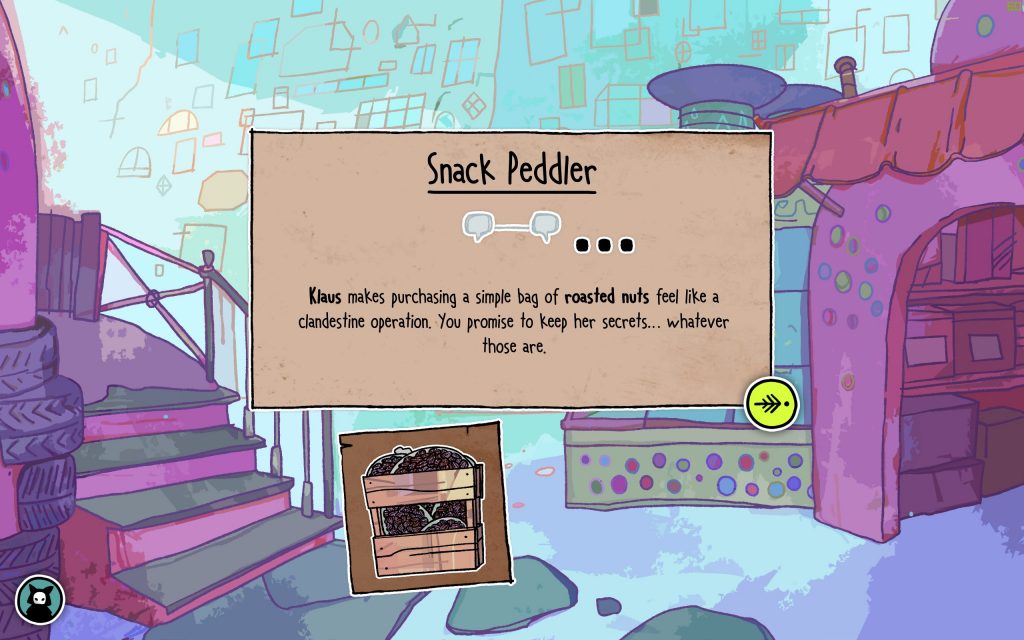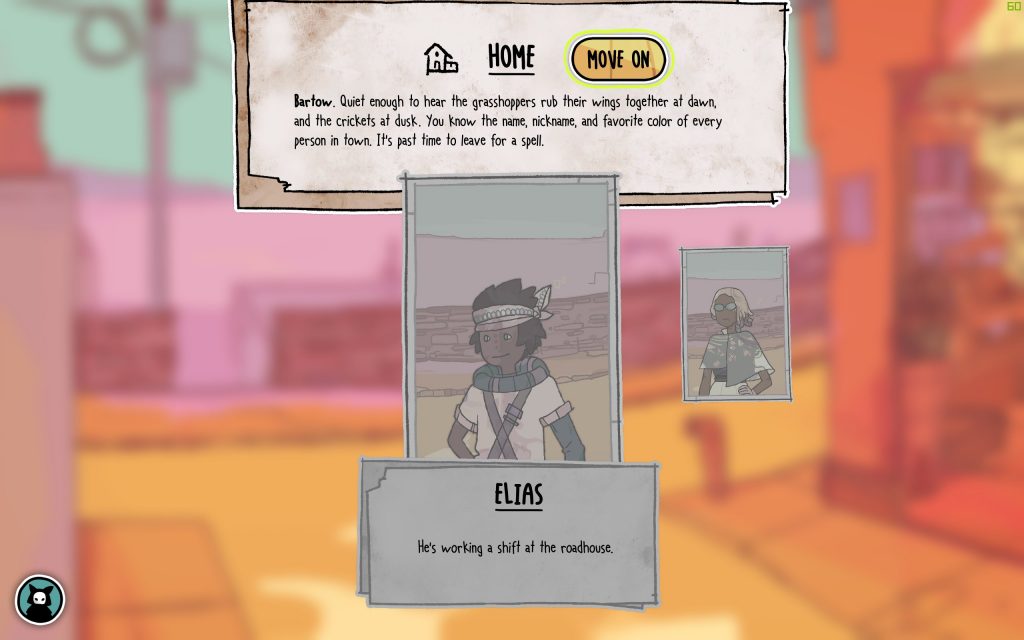Game mechanics — the rules that govern the way you interact with a game — can often be understood as metaphors. It's easy to forget this sometimes. What begins with individual actions mapped to buttons becomes a set of verbs that represent something more complex, like a battle or a . Some game mechanics are more easily recognizable as metaphors, like using minigames to convey hacking, lock-picking, fishing.
However, conversation in mainstream games is typically represented as literal and diegetic. There's no implication, when speaking to an NPC, that conversation is happening between the seams of the text boxes or voiced dialogue. What was said is what was said, with the occasional exception of implied responses from silent protagonists.
Signs of the Sojourner is a reminder that metaphor can be deployed in new ways to communicate different ideas. It's a colorful adventure game crossed with a deck builder, in which cards in your hand represent styles of communication, and conversation plays out as rounds of a card game. This mechanic unfolds across a vibrant cast of characters and places, and to the tune of a beautiful, wistful soundtrack.
Here's one of my favorite tunes from the soundtrack:

Talking is Hard
In Signs of the Sojourner, players take on the role of a young caravaneer following in their mother's footsteps. They'll travel around, gathering treats and souvenirs and specialties from different towns. After a long journey, they'll return to their hometown with new stock for their store.
A dominoes-style matching mechanic represents the ability to hold an amicable conversation and connect with the people they speak to on the road. Some people are more patient, others have quicker tempers. Some folks have very narrow communication styles, while others use a variety of approaches that reflect their trade, background, and personality.
The actual deck-building part is light; when you finish a conversation, you replace one of your cards with one from your conversation partners, reflecting how the interaction has changed you. As the game unfolds, players will discover cards with useful modifiers (like reshuffling your deck or revealing your "opponent's" hand). Sometimes, you'll end up with cards in your hand that you didn't want.

As, each new mechanical detail unfolds, its narrative purpose manifests. Some of the roughest moments of the game were also the ones that felt the most honest to the difficulty of communication. When you fail an interaction, it's rarely just bad luck. Usually there's a reason you couldn't get through to that person, and the ways in which you might not see eye to eye right now are reflected in your differing decks of cards.
Representing Communication
Even without its conversation mechanics, Signs is full of color and life. Each new town is a vibrant hand-drawn patchwork of pastels, each inhabitant unique and full of personality. It has a phenomenal, eclectic soundtrack that I fell in love with immediately, ecah track bringing the identity of a given place into even sharper focus.
Like real communication, Signs resists being "optimized". The card mechanics are interesting in their own right, but their goal is to evoke the feeling of conversation. You won't be able to succeed at every interaction; sometimes failing to connect is the only way to learn more about someone. You may not always get to decide who you're talking to, or when, and sometimes a bad interaction will have consequences that ripple into the rest of the world or shift you towards a different ending.

It's a game that asks you to try your best, but also to let it both warm and break your heart as you try to connect to its cast of characters.
Signs of the Sojourner isn't a particularly long game, and though it does have different outcomes and variations, it's a bit repetitive to immediately replay. But I see it as a game I'll revisit periodically, just to bask in the atmosphere and see what unfolds differently.
Games use mechanical systems to convey emotional or sensory experiences all the time. But Signs uses artful metaphor to abstract something as complex as the intricacies of human communication. There are moments in this game where the metaphor is so strong that the untold details of the story, of the unspecified histories between these characters, seem to write themselves in the margins of the experience. It's difficult to create that level of richness, and Signs will stick with me for a long time to come because of it.